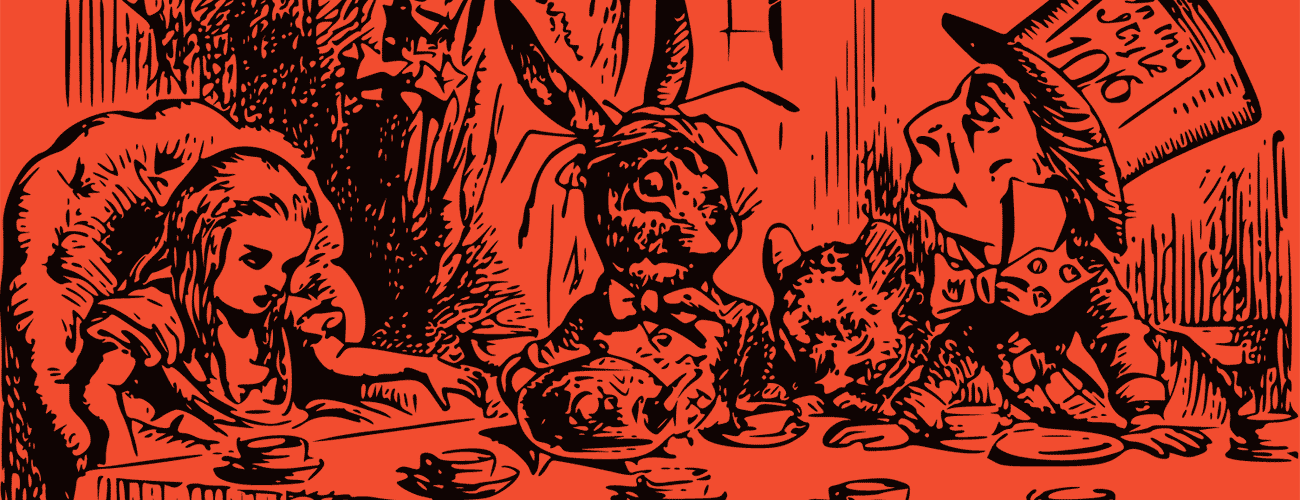Britain is thinking about getting out of the European Union. That has led to the coining of a new term, “Brexit,” a combination of “British” and “exit.” Though it sounds a little bit like a British biscuit (cookies to Americans), it has caught on.
“Brexit” is a “portmanteau,” a new word formed by a combination of two other words, like “smoke” and “fog” to yield “smog.”
We’ve written about “portmanteaus” several times, but never explained where the term came from.
You can blame Humpty Dumpty.
Or rather, Lewis Carroll. In Through the Looking-Glass in 1871, Carroll, who was fond of making up words, made one up for Humpty Dumpty to explain to Alice some of the made-up words in Jabberwocky:
“Well, ‘SLITHY’ means ‘lithe and slimy.’ ‘Lithe’ is the same as ‘active.’ You see it’s like a portmanteau—there are two meanings packed up into one word.”
Back then, a “portmanteau” was a suitcase, one that opened into two sections. But Carroll’s “portmanteau” has made it into mainstream dictionaries, as have several other words that Carroll made up for Jabberwocky.
The most popular one is likely “chortle,” which is probably a combination of “chuckle” and “snort,” though Merriam-Webster’s first definition seems more appropriate for the context in Jabberwocky: “to sing or chant exultantly.” (The young man who had just slain the Jabberwock “chortled in his joy,” which sounds more like a celebration than a laugh.) The Oxford English Dictionary calls “chortle” “A factitious word introduced by the author of Through the Looking-Glass, and jocularly used by others after him.” Regular Language Corner readers know all about “factitious” things, but since in many ways, nearly all new words are “factitious” these days, that label may not be very useful. (See “Brexit.”)
Carroll also coined “galumph,” which the Jabberwock killer did. Again, it originally implied a celebratory gait, perhaps a “portmanteau” of “gallop” and “triumph.” Now, it usually means something closer to “lumbered,” or to move slowly and clumsily.
And what in heaven’s name is a “frumious Bandersnatch”? Unlike most of the made-up words in Jabberwocky, the “Bandersnatch” appears again in Looking-Glass, both times in reference to things that were moving quickly, implying that the “Bandersnatch” is a swift beast. It seems obvious that a “frumious Bandersnatch” is angry or upset and to be avoided.
The Bandersnatch was adopted by a number of science fiction authors, including J.R.R. Tolkien, Larry Niven, and Roger Zelazny (yes, we were in the science fiction club in high school), and has lots of other pop-culture references as well.
Carroll was able to get away with all of these “portmanteaus” and “factitious” words because, while Alice didn’t really know the words, she was able to at least grasp their basic concepts. After reading Jabberwocky, she told Humpty Dumpty that “it’s RATHER hard to understand!” Even so, she said, “Somehow it seems to fill my head with ideas—only I don’t know exactly what they are! However, SOMEBODY killed SOMETHING: that’s clear, at any rate.”
As we’re fond of saying, context is always the key.
Carroll explained his “portmanteau” logic further, in the preface to The Hunting of the Snark, where the Bandersnatch and some other Jabberwocky words made repeat appearances:
For instance, take the two words “fuming” and “furious.” Make up your mind that you will say both words, but leave it unsettled which you will first. Now open your mouth and speak. If your thoughts incline ever so little towards fuming,” you will say “fuming-furious;” if they turn, by even a hair’s breadth, towards “furious,” you will say “furious-fuming;” but if you have the rarest of gifts, a perfectly balanced mind, you will say “frumious.”
About that “snark,” which Carroll also invented. It has nothing to do with what we today think of as “snark,” the irreverent, sarcastic comment you might make when sending someone on a “snark hunt.” Instead, that kind of “snark” is a back formation of “snarky,” which comes from words meaning “to snore” and later came mean “to nag,” and the first use of that “snark” came more than 100 years after Lewis Carroll.
If Carroll had invented such a word, he might have called it “sargging,” a “portmanteau” of “sarcastic” and “nagging.” But he didn’t. We did.
Let’s see if it catches on as well as “Brexit” has.
Merrill Perlman managed copy desks across the newsroom at the New York Times, where she worked for twenty-five years. Follow her on Twitter at @meperl.

